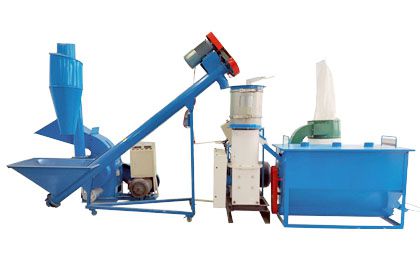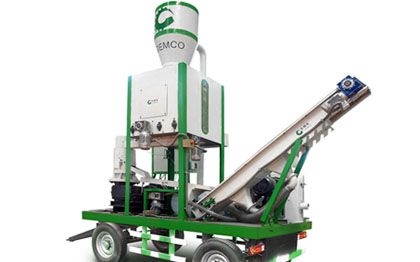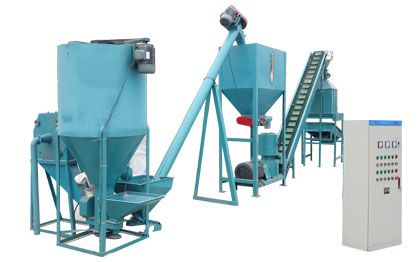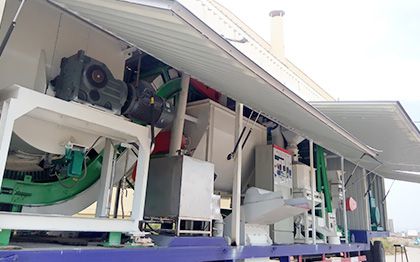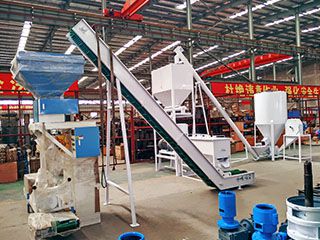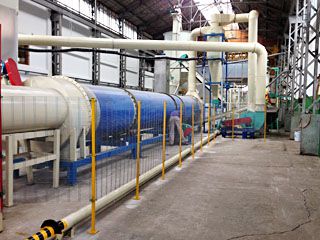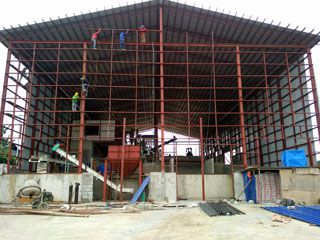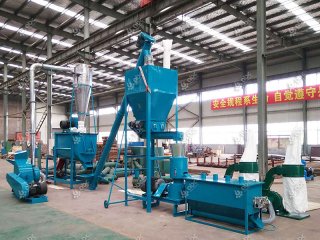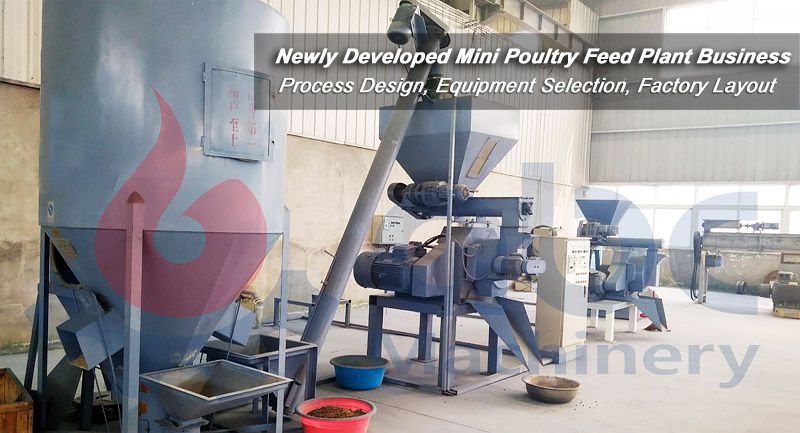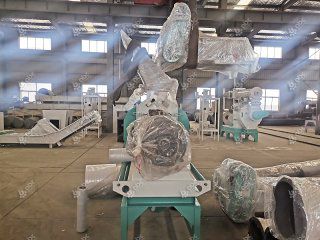With the continuous global demand for high-end aquatic products, salmon farming has become one of the key cold-water fish industries in many countries. Processing high-quality salmon feed requires top performance from fish feed processing machine, and increasingly, more fish feed making business are choosing to procure salmon feed manufacturing machines online, achieving more convenient, efficient, and personalized equipment selection and fish feed production plant planning.
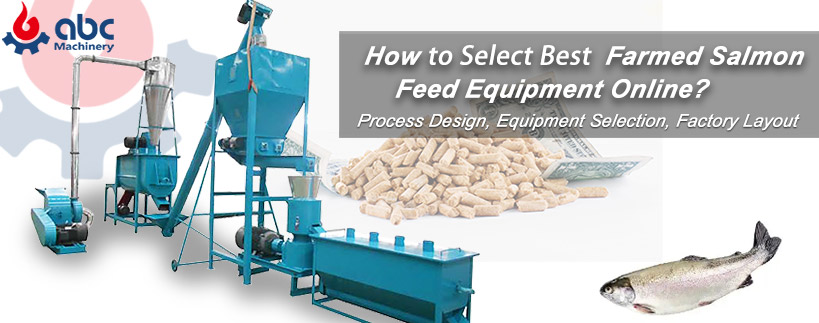 Select Profitable Farmed Salmon Feed Equipment Online
Select Profitable Farmed Salmon Feed Equipment Online
Key Technical Parameters and Advantages of Salmon Feed
Salmon is a cold-water, high-metabolism, carnivorous fish species with stringent requirements for the nutritional density, water stability, and fish feed pellet size of the fish feeding pellets. The table below illustrates the significant differences in pellet density, protein level, and fat coating methods among different aquaculture species:
|
Feed Type |
Key Technical Parameters |
Advantages |
Main Applications |
|---|---|---|---|
|
Farmed salmon feed |
Pellet density: ≥1.15 g/cm³, Protein content: 40%-55% |
Suitable for low temperature, high dissolved oxygen environment, improves digestibility by over 15% |
Salmon farming |
|
Freshwater fish feed |
Pellet density: 1.0-1.1 g/cm³, Protein content: 28%-40% |
Growth rate increased by 10%-12% |
Grass carp, tilapia |
|
Shrimp feed |
Pellet density: 0.85-1.0 g/cm³, Fat coating rate: 3%-5% |
Survival rate increased by about 8%-10% |
Various shrimp species |
|
Marine fish feed |
Pellet density: ≥1.2 g/cm³, Protein content: 45%-55% |
Bioconversion rate increased by 12%-15%, suitable for high salinity |
Grouper, tuna |
|
Land poultry feed |
Pellet hardness: 250-300N, Protein content: 18%-25% |
Not suitable for aquaculture, moderate palatability |
|
ABC Machinery is dedicated to providing high-performance, customized farmed salmon feed equipment and fish feed manufacturing process solutions that fully meet the stringent feed quality demands of cold-water fish farming. Whether you are building a new farmed salmon feed mill factory or upgrading an existing fish feed production line, we offer tailored, market-competitive salmon feed processing systems. Contact us to get free salmon feed pellet samples, complete formula recipes, and personalized quotes!
Investing in Salmon Feed Machinery and Production Lines: What to Consider?
The complete fish feed making process for salmon includes: crushing → mixing → conditioning → extrusion → drying → cooling → coating → screening → metering and packaging. The following are critical points to evaluate before investing in fish feed pelleting machine:
Define Production Capacity and Pellet Type
-
Starter feed pellets usually have a diameter ≤1.5mm with fat content below 12%, while grower pellets are typically 4–6mm in size with fat content over 18%.
-
ABC Machinery customizes multi-specification feed mill production process from 1–10mm for different farmed salmon species (e.g., Atlantic salmon, coho salmon), supporting quick switching between micro-pellets and high-fat grower feed. Advanced
Fish Feed Manufacturing Process Adaptation
-
Key technical configurations include floating-sinking control (pellet density ±0.02g/cm³), vacuum oil spraying system (fat addition accuracy ±1.5%), and twin-screw extrusion technology (stability increased by over 10%).
-
ABC Machinery’s fish feed machine comes standard with vacuum oil and post-spray flavor systems, compatible with high nutrition formulas containing 45% protein and 18% fat, achieving salmon palatability test results above industry averages.
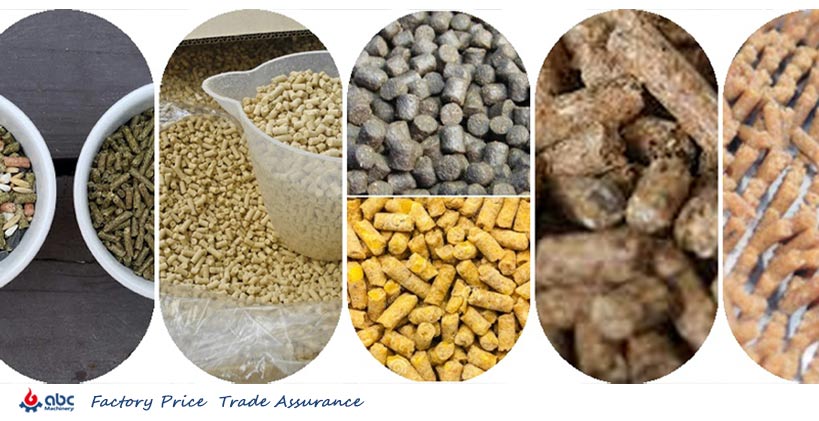 Produce Profitable Farmed Salmon Feed Pellet at Low Price
Produce Profitable Farmed Salmon Feed Pellet at Low Price
Raw Material Compatibility and Equipment Corrosion Resistance
-
Common raw material challenges: salmon feed formulas often contain over 20% fish oil and marine protein powder, which easily corrode parts of fish feed processing machine, and increase cleaning difficulty for the fish feed processing line conveying system.
-
ABC Machinery uses 316L stainless steel contact surfaces with special coated alloy bodies, fully oil- and rust-proof, with core components lifespan exceeding 8,000 hours.
Salmon Feed Pellet Quality and Stability
-
High-quality salmon feed pellet standards include stable density, water disintegration time ≥30 minutes, uniform pellet shape, and non-greasy surface, which are essential for ensuring salmon digestion efficiency.
-
ABC Machinery’s multi-stage conditioning, precise drying and cooling, and dynamic screening system achieve a 98% pellet formation rate with consistent batch quality; actual tests show water stability exceeding 40 minutes.
Energy Saving, Environmental Compliance, and Regulation Adaptation
-
Environmental highlights: some salmon feed pellet production equipment projects must meet energy efficiency ratings, noise limits (≤85dB), and dust emission controls.
-
ABC Machinery’s equipment is CE/ISO certified, equipped with pulse dust collectors and noise-reducing housings, helping farmed salmon feed mill company reduce energy consumption by 15%-20% while complying with global environmental standards.
Expandability and Production Line Upgrade Capability
-
Project flexibility requirements: support for later additions such as twin-screw expansion lines, premix coating systems, and automatic palletizing modules.
-
ABC Machinery adopts a modular main line and pluggable auxiliary processes design, shortening average installation cycles to 45 days, and supports quick mold changes to meet multi-product combined production demands.
 3D-Drawings of Farmed Salmon Feed Pellet Mill for Sale
3D-Drawings of Farmed Salmon Feed Pellet Mill for Sale
ABC Machinery’s Farmed Salmon Feed Pellet Machine Online Purchasing Framework
As a global leader in aquaculture feed engineering technology, ABC Machinery has over 20 years of experience in aquafeed equipment R&D and export, providing complete cold-water fish feed production line solutions for customers worldwide. For easy understanding, below are six key steps in the online procurement process. For more detailed processes and customization, please contact us for the full process package and project consultation:
-
Submit salmon farming requirements including capacity, fish species, and plant conditions. ABC Machinery’s precise data models achieve preliminary design accuracy above 95%.
-
Confirm salmon feed production process. ABC Machinery uses modular process designs supporting daily capacity flexibly from 1 ton to 50 tons, ensuring production efficiency and product stability.
-
Provide fish feed mill plant layout and major equipment list. Using 3D simulation, ABC Machinery optimizes factory space and precisely matches feed processing equipment, saving an average of 20% factory area.
-
Remote factory acceptance and sample machine demonstration, with intelligent monitoring providing real-time feedback, pellet density control error within ±0.1g/cm³, and water stability over 40 minutes, ensuring top-quality products.
-
Sign international contracts and accept equipment in stages, shortening project duration by 15%, protecting client rights.
-
Arrange engineer installation and commissioning; on-site average commissioning within 7 days, with online support response under 30 minutes to ensure smooth production start-up.
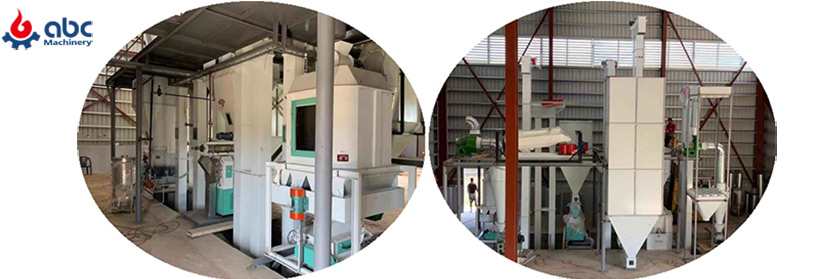 Setting up Farmed Salmon Pellet Production for Sale
Setting up Farmed Salmon Pellet Production for Sale
Salmon feed processing has shifted from "focus on quantity" to "focus on quality + light assets + high intelligence." Choosing a stable and efficient farmed salmon feed pellet machine is not only the foundation for improved farming benefits but also a gateway for aquaculture enterprises entering the international market.Through ABC Machinery’s one-stop online procurement service, you will receive professional support covering design, equipment selection, production, and after-sales service throughout the entire lifecycle .Feel free to contact us now to get your exclusive salmon feed production line configuration plan and quotation list.


